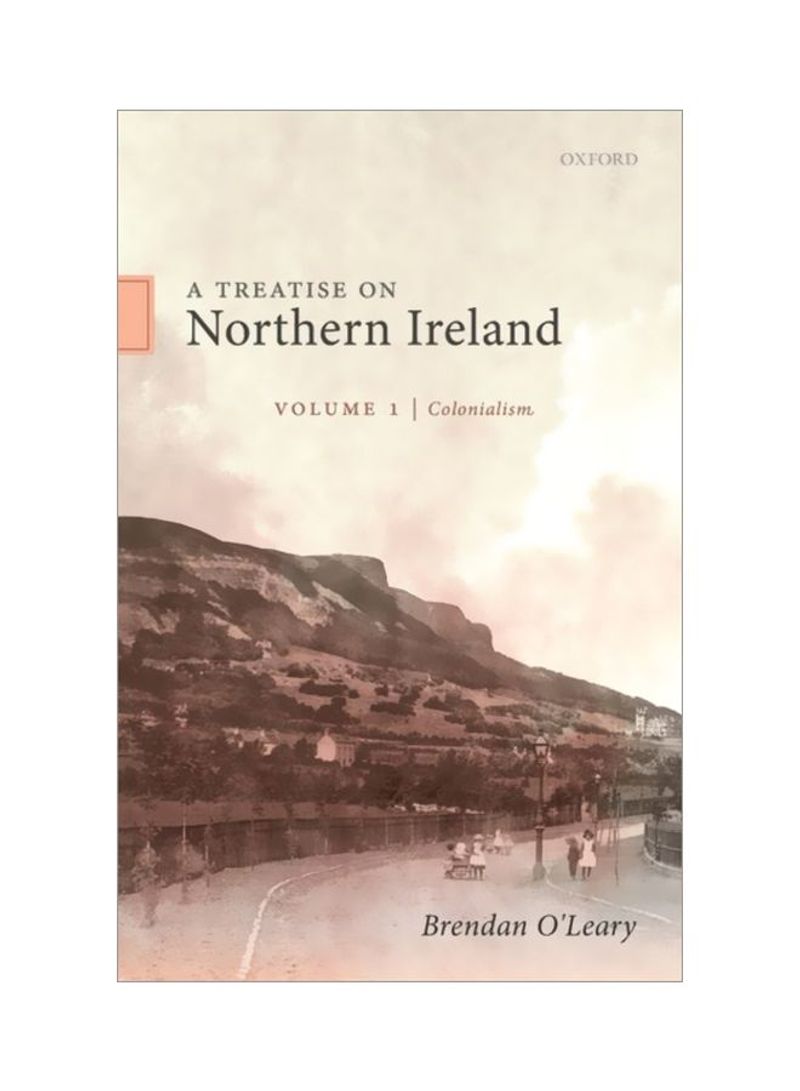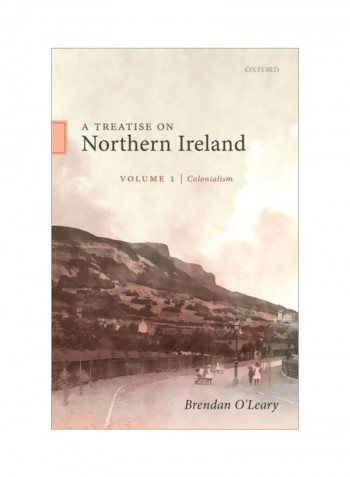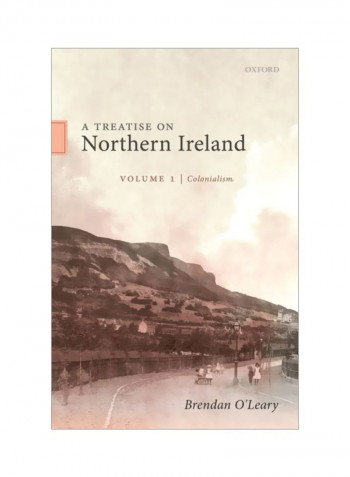A Treatise On Northern Ireland: Volume I: Colonialism Hardcover
Recommend
Sort by
Rating
Date
Specifications
Grade
New
Author 1
Brendan O'Leary
Book Description
This brilliantly innovative synthesis of narrative and analysis illuminates how British colonialism shaped the formation and political cultures of what became Northern Ireland and the Irish Free State. A Treatise on Northern Ireland, Volume I provides a somber and compelling comparative audit of the scale of recent conflict in Northern Ireland and explains its historical origins. Contrasting colonial and sectarianized accounts of modern Irish history, Brendan O'Leary shows that a judicious meld of these perspectives provides a properly political account of direct and indirect rule, and of administrative and settler colonialism. The British state incorporated Ulster and Ireland into a deeply unequal Union after four re-conquests over two centuries had successively defeated the Ulster Gaels, the Catholic Confederates, the Jacobites, and the United Irishmen-and their respective European allies. Founded as a union of Protestants in Great Britain and Ireland, rather than of the British and the Irish nations, the colonial and sectarian Union was infamously punctured in the catastrophe of the Great Famine. The subsequent mobilization of Irish nationalists and Ulster unionists, and two republican insurrections amid the cataclysm and aftermath of World War I, brought the now partly democratized Union to an unexpected end, aside from a shrunken rump of British authority, baptized as Northern Ireland. Home rule would be granted to those who had claimed not to want it, after having been refused to those who had ardently sought it. The failure of possible federal reconstructions of the Union and the fateful partition of the island are explained, and systematically compared with other British colonial partitions. Northern Ireland was invented, in accordance with British interests, to resolve the 'hereditary animosities' between the descendants of Irish natives and British settlers in Ireland. In the long run, the invention proved unfit for purpose. Indispensable for explaining contemporary institutions and mentalities, this volume clears the path for the intelligent reader determined to understand contemporary Northern Ireland.
ISBN-10
0199243344
ISBN-13
9780199243341
Language
English
Publisher
Oxford University Press
Publication Date
11 Jun 2019
Number of Pages
560
About the Author
Brendan O'Leary is the Lauder Professor of Political Science at the University of Pennsylvania and World Leading Researcher Visiting Professor of Political Science at Queen's University Belfast. He is the inaugural winner of the Juan Linz Prize of the International Political Science Association for lifetime contributions to the study of federalism, democratization, and multinational states, and was recently elected an Honorary Member of the Royal Irish Academy and to Membership of the US Council on Foreign Relations. Educated in Northern Ireland, Oxford, and the London School of Economics & Political Science he advised parties and governments during and after the making of the Good Friday Agreement. His extensive publications include Power-Sharing in Deeply Divided Places (co-editor, University of Pennsylvania Press, 2013), The Northern Ireland Conflict (OUP, 2004), and Explaining Northern Ireland (co-author, Blackwell, 1995).
Editorial Review
The most prolific, perceptive and powerfully analytical writer on the north in the last 35 years, Brendan O'Leary, has just produced his magnum opus. * Brian Feeney, Irish News * The detailed coverage is astonishing, the range immense. The book exemplifies best practice in social science and history, combining both disciplines, asking analytic questions of the historical record and widening the remit of social science - above all by looking carefully both at political calculations and the details of constitutional arrangements. It is important to stress that he offers us an analytic history of Ireland as a whole, paying special attention to developments in the Irish Free State and to the Republic thereafter. * John A Hall, McGill University in Montreal, Dublin Review of Books * O'Leary colors his work throughout with lively writing, moving past equivocation and pulling no punches in his assessments of participants or previous scholarship. He sees the disputatious state of Northern Ireland as the result of attempts to instill an Irish or British national identity among its residents....Although the cumulative length of this work might be daunting, the author has thoughtfully structured his books and chapters in a way that is accessible to both non-experts and specialists. Whatever the audience, this is a work of canonical importance for understanding Northern Ireland. * M. J. O'Brien, Franciscan University of Steubenvill, CHOICE *



